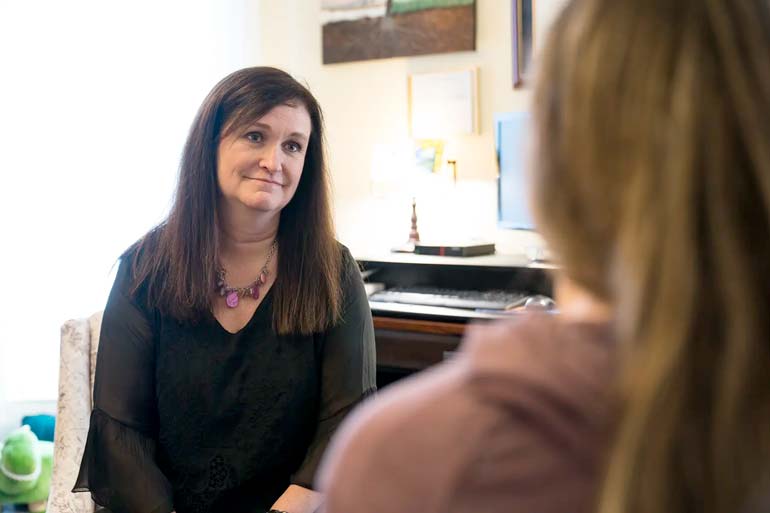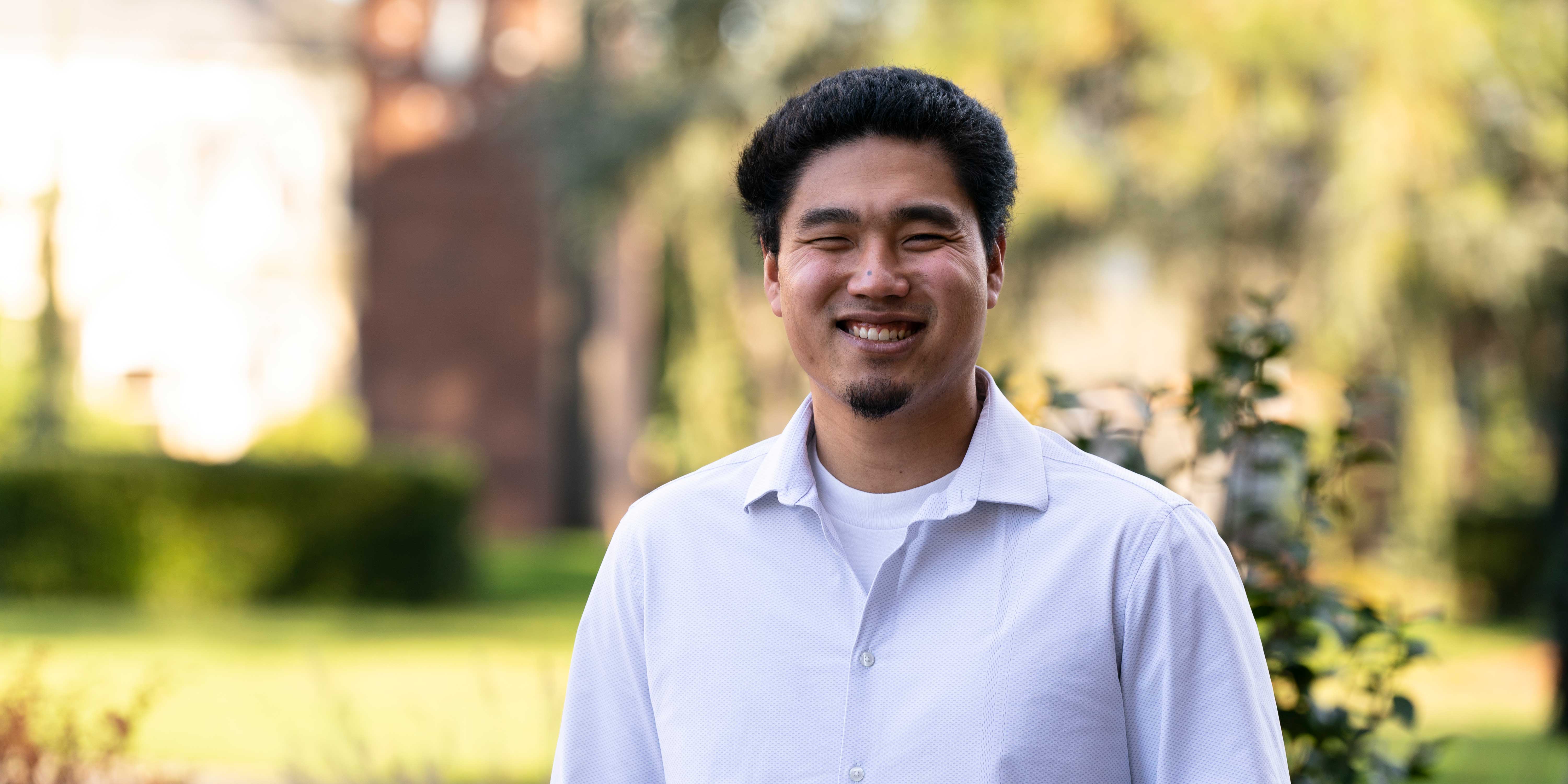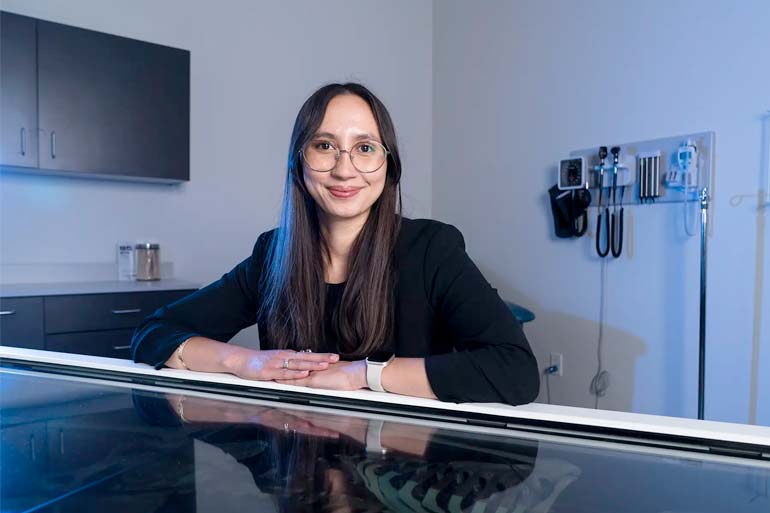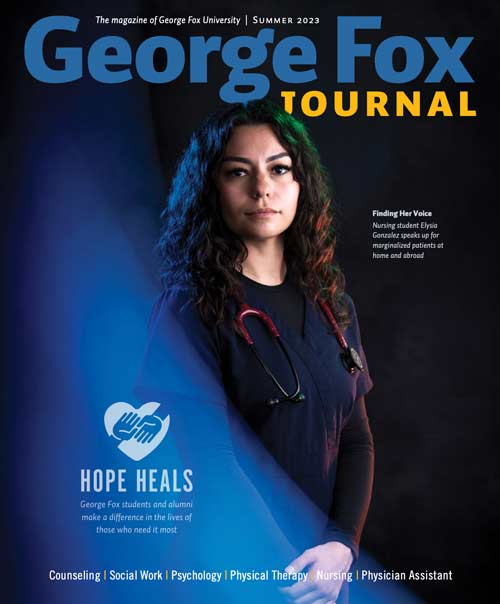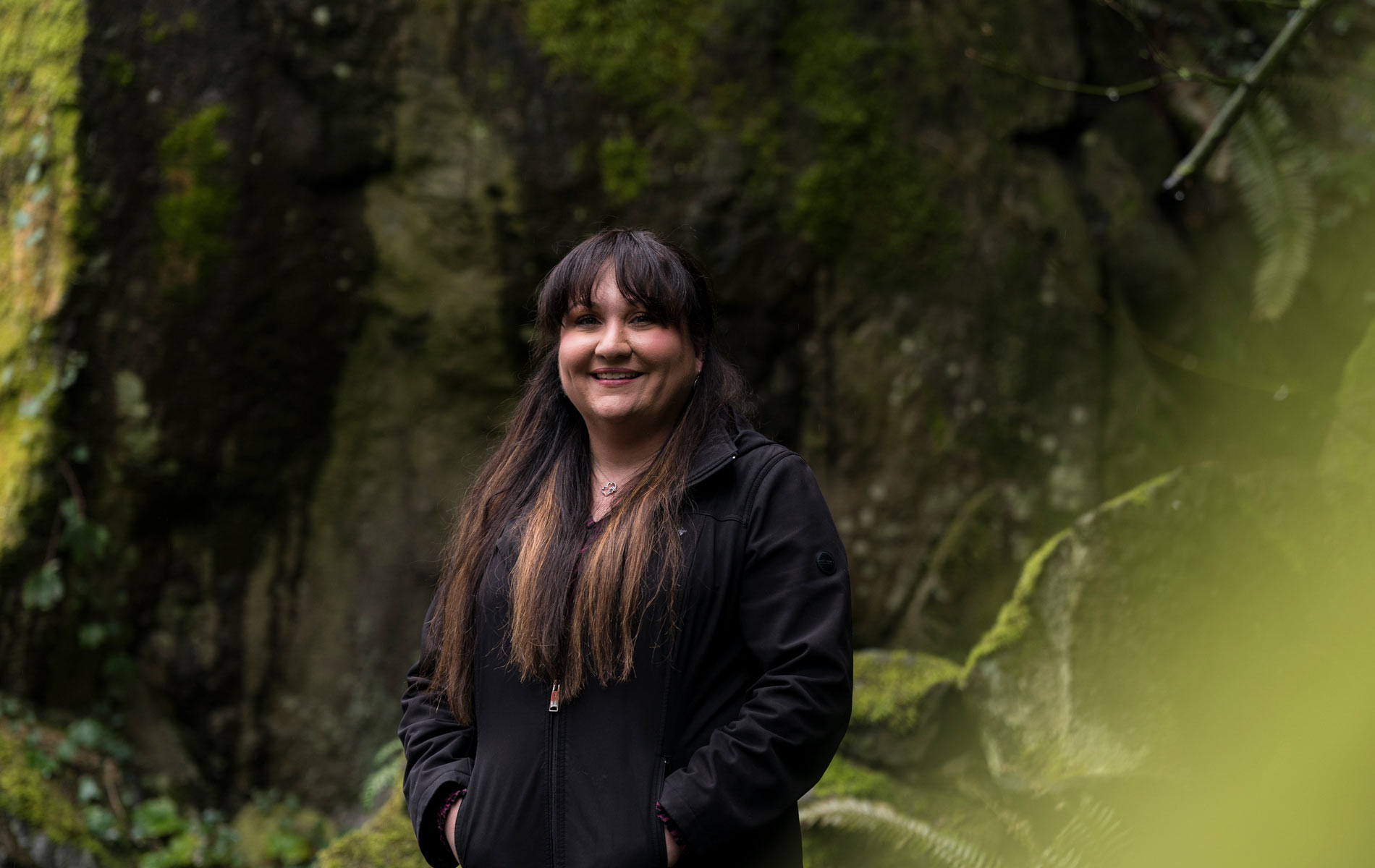
‘Hope Is Healing’
After surviving the 2017 Las Vegas shooting, Marchelle Carl found a way forward through counseling – and a path to a meaningful career
It was Oct. 1, 2017. Country star Jason Aldean had just started his hit song, “When She Says Baby,” on the final evening of the Route 91 country music festival in Las Vegas. As the tightly packed audience danced, sang and cheered, Marchelle Carl and two of her friends stood right in front of the main stage – the same spot they’d taken for the past two nights.
But before the band could finish the first chorus, Carl heard a crack, crack! Something seemed wrong. Maybe a speaker blew out, or perhaps some prankster lit a few firecrackers. It was difficult to hear over the noise of the 22,000 people in attendance.
She looked around, but instead of worried audio technicians or overly rowdy fans, she saw chaos unfolding around her. People were screaming. Concertgoers began climbing over barricades. Carl suddenly realized it wasn’t a faulty speaker or firecrackers. It was gunfire.
Grabbing her cousin’s hand, she fled to the right-hand side of the stage, scampering to find cover behind a sunglasses vendor. Later, they’d learn that was the side closest to Mandalay Bay – the same side that the shooter was firing from.
A minute passed. After a few moments more, they caught their breath. Finally, there was a brief lull in the bullets, and people began to move.
But as Carl stood, she couldn’t see her cousin or her friends. Instead, she found herself surrounded by masses of panicked people running for their lives. It felt like a stampeding herd of elephants.
All around her, rumors flew. Some said there were snipers on the rooftops of multiple hotels in the area, while others claimed there was a bomb threat. There was no way to be certain what the truth was as she became swallowed up in the fleeing crowd.
As she ran, she called her mom, unsure if this would be her last chance to say goodbye.
‘It felt like the longest 10 minutes of my life’
After the crowd pushed Carl farther down the strip, she found herself in lockdown at a hotel, separated from her friends. She tried to keep in contact with them, but her phone was dying and she was struggling to find service. Nonetheless, she was safely out of range of the shooter, and so were they.
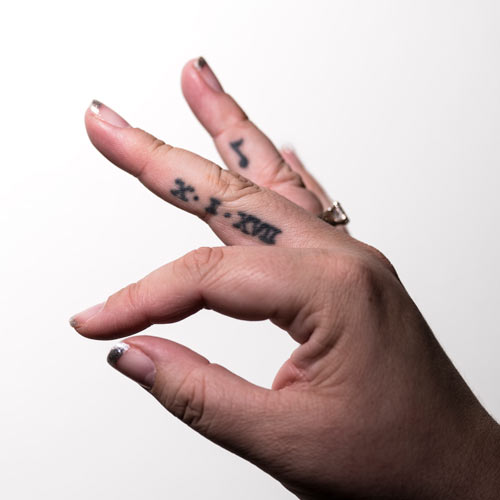
A tattoo reminds Marchelle Carl of the date and the first note in the song that was playing when she heard shots and started running.
The next morning, she decided to return home, foregoing the group’s ziplining trip they had planned. “I was never so happy to see that PDX airport carpet,” she recalls.
Other than a few cuts and bruises, Carl was unharmed physically, “but the mental injuries were a lot more impactful. I came home, and at first I thought, ‘I can just take a day or two off work, and I think I’ll be fine. I can resume life. I’m no longer in Las Vegas. I’m safe. I made it.’”
But that night, she couldn’t sleep.
“I could not get the sound of the gunshots out of my head. I could not get away from the panic as I ran to safety. And I just could not fathom getting in a car and driving and doing basic things,” she says. She needed groceries. She needed to walk her dog.
Taking it one step at a time, she decided to try circling the block with her dog.
They fell into their usual pattern of walking and then running alongside each other – but the running felt all too familiar, and Carl could feel the adrenaline building up far too quickly. “It reminded me of running for my life,” she says. “I really struggled.”
After realizing she needed more than just a day off from work, Carl decided to seek counseling.
This wouldn’t be the first time she had seen a counselor. In kindergarten, she was introduced to play therapy after her best friend passed away from leukemia. Then, in high school, she sought counseling when her brother and sister-in-law lost their baby. In 2016, she went into counseling again when a childhood friend took his life. But this time felt different from the past.
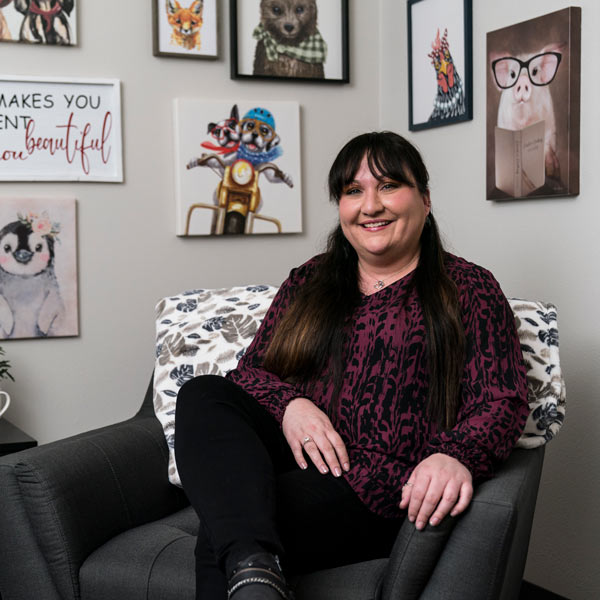
“This counselor really helped normalize anxiety for me,” she says. “I knew anxiety existed, I knew it was a thing that people have, and I’ve heard people talk about it, but I never knew what it felt like until I went through the anxiety of not being able to go to the grocery store, not being able to drive, not being able to sleep at night because I was so fearful of another nightmare or closing my eyes and hearing gunshots.”
Through trauma-informed counseling, Carl was equipped with intervention techniques that allowed her to calm down in those moments of fear. Many of these focused on using her senses, like touching her bedsheets, petting her dog or looking at the nightlight in her room.
When reflecting on her past, Carl saw a similar pattern: Every time she went to counseling, it helped her.
‘I have sat in a client chair before, and I know it works’
After researching what she would need to become a licensed professional counselor, Carl discovered George Fox. Following a lengthy interview process, she was accepted and enrolled in the two-year clinical mental health counseling program, adding a trauma-informed care certificate.
By specializing in trauma counseling, Carl could learn about the other side of counseling that she received as a child.
“I worked directly with Dr. Anna Berardi to set up what my trauma coursework would look like,” says Carl, who stayed with Berardi all the way through licensure.
“What I’ve learned from my education, from classwork, and from my own losses and tragedies is that part of creating hope is being able to have a community of support behind you.”
She also took a few courses from Berardi for her trauma-informed care certificate, and because those courses often encouraged students to share their personal stories throughout the curriculum, “they opened my eyes to redefining the definition of trauma while recognizing that no two people’s traumatic experiences are the same,” she says.
This created a sense of community for Carl. In every class, she grew close to her peers – an environment she strives to emulate in her counseling practice today.
“What I’ve learned from my education, from classwork, and from my own losses and tragedies is that part of creating hope is being able to have a community of support behind you,” she says. “Those are the people who also make you want to keep fighting, make you want to get better, and make you want to have a more fulfilled life. If you do not have a good supportive community, you’re really going to struggle.”
‘This struggle is not going to last forever’
After Carl graduated, Berardi approached her and offered her a position as an adjunct professor for a few of the entry-level counseling courses at George Fox. “I ended up loving it,” she says. “Now I always ask if there are any classes for the next semester, and I teach one or two of them.” In the future, Carl wants to return to school for her PhD so she can continue to educate and mentor aspiring counselors.
But for now, she remains focused on instilling hope in her clients while working through their struggles, just as her counselors had helped her. She works part time at Kaiser Permanente and serves as a full-time counselor associate at the Northwest Catholic Counseling Center in Portland.
“I tell every client on our very first session together, ‘My No. 1 goal is that you won’t need me anymore. You will move on and move through whatever you came for,’” she says. “‘We will have worked it out together, and you’re going to stop counseling because you don’t need me.’ And that’s when I know that we did a good job.”
Looking for more?
Browse this issue of the George Fox Journal to read more of the stories of George Fox University, Oregon's nationally recognized Christian university.
